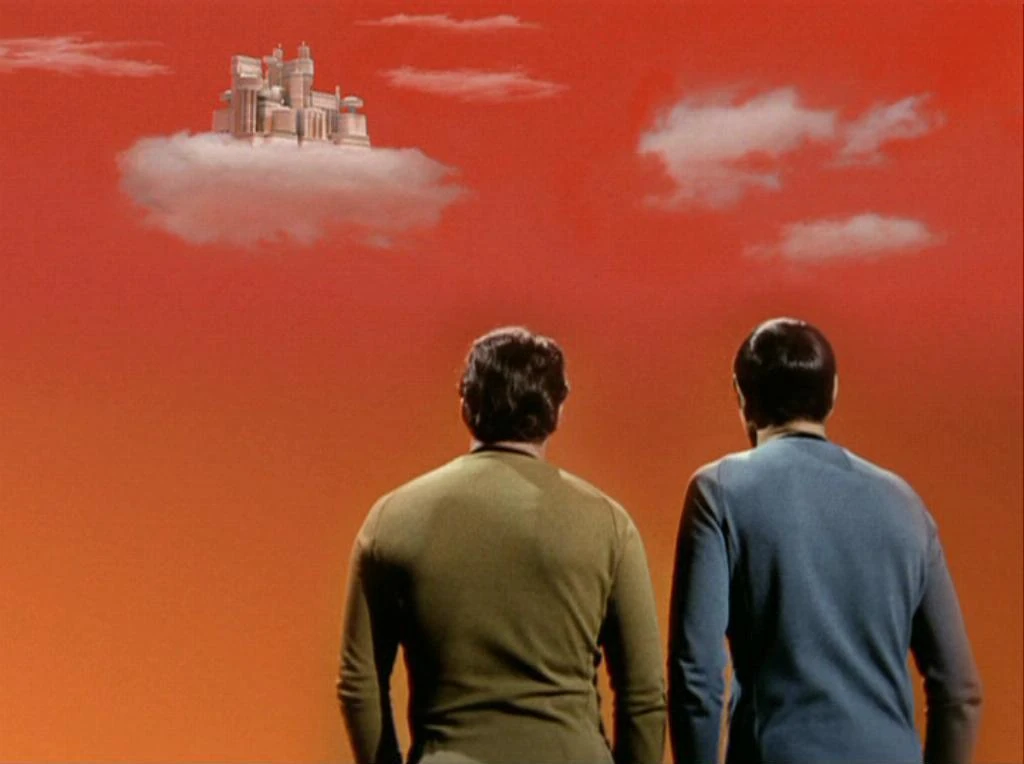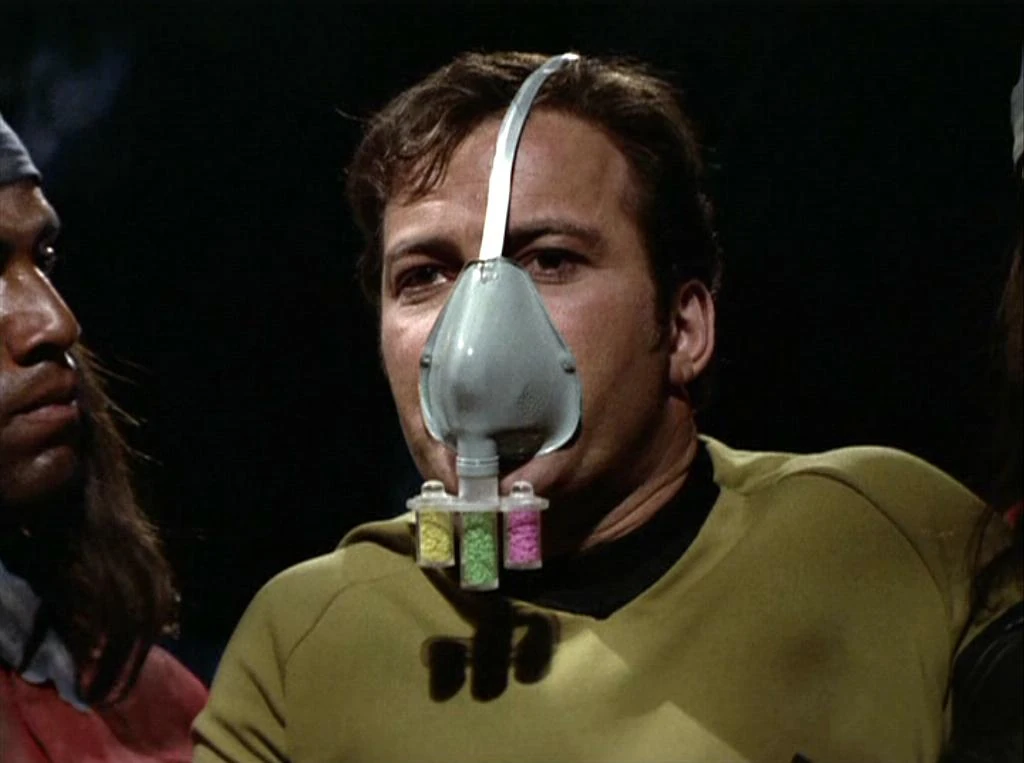Prime Location
The Prime Directive is a pretty cool idea. Star Trek wasn't always clear on what it meant, but the general idea is that the Federation and its representatives must not interfere with the development of alien civilizations. It's a cool enough idea that I've heard crackpots who claim aliens have visited Earth but haven't identified themselves because they've got a Prime Directive of their own.
Many have noted it was just a dramatic device (I believe most of the Trek shows used it), to be pulled out when convenient to make things tougher on our heroes. If it got in the way of the story, though, it would be discarded. That's certainly what I was thinking while recently watching "The Cloud Minders," an episode from the dreaded third season of the original series.
I remember seeing this one as a kid, and being impressed with the basic concept. Kids don't think too much about the organization of society, so any discussion of it on a TV show could be mind-bending. The episode is about a culture (actually, a planet, but Trek tends to believe in one culture per planet) where the leaders--who devote themselves to art and higher things--live in a city on a cloud, while most toil in the caves below, digging up a valuable substance known as zenite. In the unfortunate Star Trek tradition of names based in English, the cloud-city is called Stratos and the cave dwellers are Troglytes. The symbolic clash here may be a bit obvious, but it's light years more subtle than "Let That Be Your Last Battlefield."
Zenite is the show's maguffin--the Enterprise needs it to save some lives or something. The point is that Kirk and Spock get to the planet and find themselves embroiled in the fight between the elite and the laborers. Rather than leave things alone, in no time flat Kirk and Spock are complaining to the leaders that they treat the workers unfairly. I'm not denying the elite are obnoxious, and bigoted in their beliefs about the cave dwellers, but hey, isn't the Prime Directive the top rule they're supposed to follow?
It's discovered that Zenite gas effects the troglytes, making them stupid and combative (so the elite have a point). But the effect is only temporary, and McCoy comes up with a gas mask that will protect them. Kirk wants to give all the Troglytes these masks, aka, shred the Prime Directive.
And if that's not enough, when the head cloud dweller won't listen to Kirk's arguments, Kirk has him involuntarily beamed down to a cave to observe the effects of Zenite personally. To Kirk, it's not even a Secondary Directive--his only rule is to follow his personal sense of justice.
Before he leaves, Kirk promises, now that he's turned their society upside-down, that the Federation Bureau of Industrialization will come in and help them reorganize everything. So I guess the Federation is used to this sort of thing.
Actually, the show's metaphor works amazingly well for the modern struggle we see in society. Many leaders believe (or at least used to believe) that they must ensure basic freedoms for their citizens--that the state must not interfere with personal beliefs and activities, or at least intrude as little as possible. Meanwhile, others feel that the citizenry is their project, to shape and mold into a better society, and if this means preventing them from saying stupid things or thinking stupid thoughts, it's well worth it. So well done, Star Trek. The struggle continues. Free the Troglytes.
PS A two-volume oral history of everything Star Trek is now available. The combined length is over 1400 pages. Luckily, as the first book covers 1966 to 1991, that will take care of just about everything I'm interested in. (As I write this I see the first volume has three times as many customer reviews as the second, so I guess I'm not alone.)




5 Comments:
The prime directive is the opening issue in the second of the reboot series with Chris Pine. The impression I have had, though, it becomes less important the more technologically advanced a society is. And in one of the best remembered episodes, A Piece of the Action, it is thrown out the window because damage was already done a century before the Enterprise arrived when an early earth vessel left a had cover copy of "Chicago Gangsters" on a planet of impressionable aliens. Why they had that book with them, why they brought it to the planet surface, and why they left it (and no other books?) is not explained, but you get to see Kirk drive a stick shift badly.
I think these prime directive episodes also spoke to the growing concern/guilt in the '60s over American eradication of native Indian culture. Star Trek, however, took a balanced approach, with Spock and McCoy arguing whether a primative culture is in fact a stunted culture (usually because some technological effort was made to keep the culture from advancing. Kirk generally sided with interference contrary to the prime directive, and then rationalized he was fixing something that was already askew.
I only saw two episodes of ST: Enterprise, which is set prior to ST:TOS, including the worst ST episode I've ever seen. This detestable episode of Enterprise, entitled "Dear Doctor" shows the evolution of the Prime Directive in an episode where the crew refuses to save an intelligent species that will be wiped out by a plague -- even though the Federation folks know the cure -- on the grounds that another race on their planet might be destined by evolution to take the sick race's place after they go extinct. In the end, they give them medicine to ease their suffering but don't save them.
All I can say is, Kirk and his crew would have saved them.
On the other hands, these are TV writers' ideas
Don't cross the guild, man. They'll prime directive your ass.
The Prime Directive, as stupid as it may be, is designed to let a culture develop, not to make sure it dies off like it should. Letting a people die when you could save them is just this side of genocide.
Post a Comment
<< Home